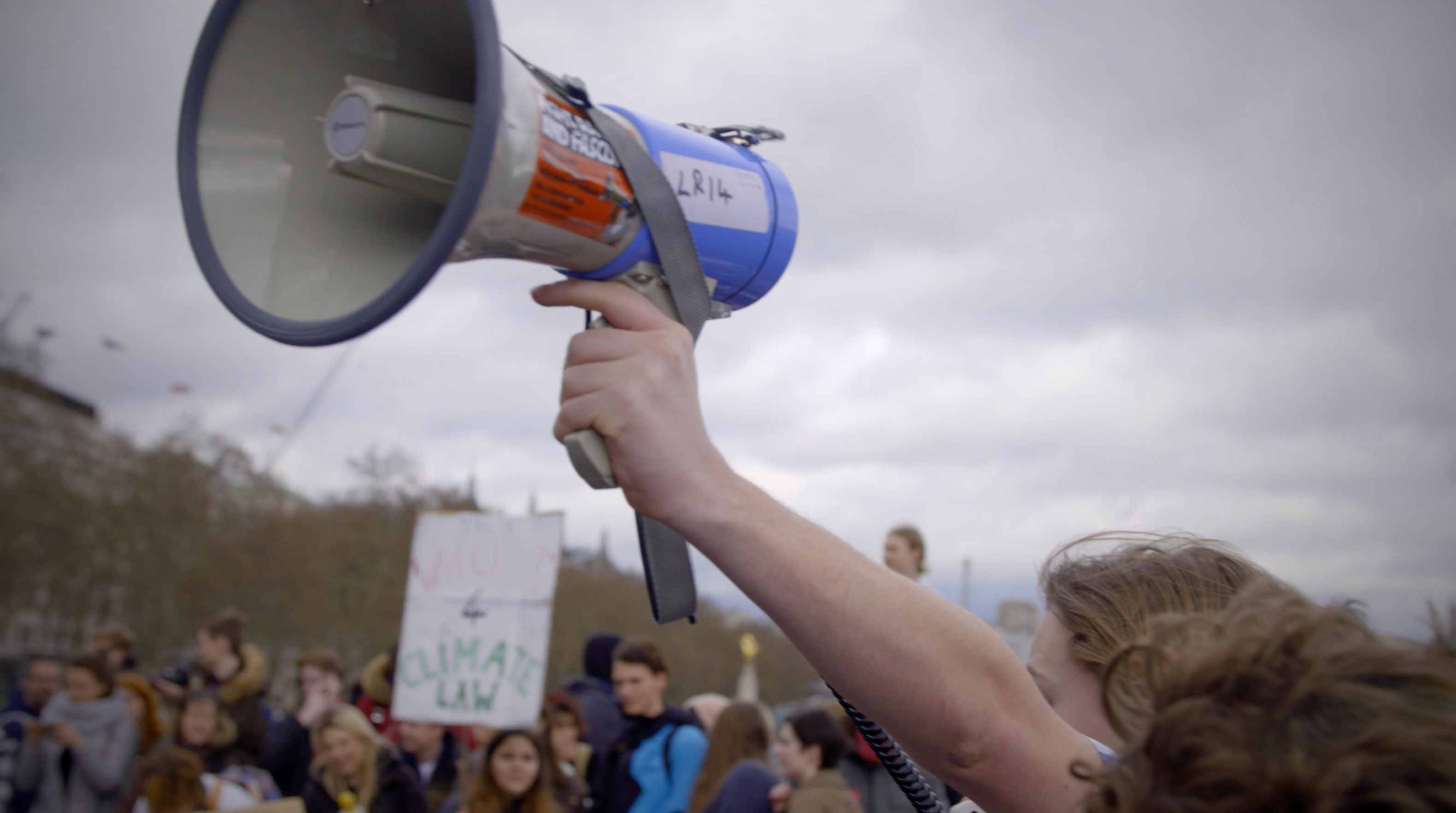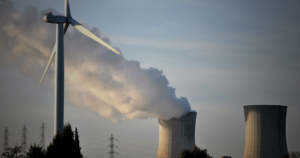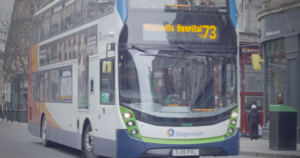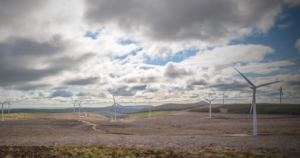Coll Mccail | Twitter
More than 100 days on from the end of COP26, climate activist Coll Mccail issues this passionate call to rekindle the spirit of protest – and unite against the twin threats of climate change and the rising cost of living.
Last month marked 100 days since the gavel fell on COP26 in Glasgow. 100 days since the end of a conference that was going to ‘save the planet’ and avert climate catastrophe. Of course, neither of those goals were achieved – not that they were ever going to be. Cast your mind back a few months and you’ll remember COP26 closed with a whimper, little to no concrete progress and a teary-eyed apology from President Alok Sharma.
Today, with the outbreak of war in Europe, the climate crisis has, understandably, slipped from our timelines, vanished from our screens and moved out of popular consciousness. In spite of this, the crisis looms larger than ever. 2021 was the sixth hottest year on record and, just last month, the UK government approved another new North Sea oil field. Our need to act, and act transformationally, remains as urgent as it did when the world’s eyes were glued to UN negotiations in Finnieston last November. So, we must ask, what do we do not just to force climate backup the agenda, but to ensure it stays there?
"If the cry of climate justice which gripped Glasgow’s streets during COP26 is to be more than hollow rhetoric, we must organise, mobilise and movement-build around the cost of living crisis with the same ferocity that we did last November"
The answer is not simple, but it should be obvious: Follow through on our message. We are living amidst a cost of living crisis, which will only grow worse. Facing real terms wage cuts, people are being fleeced by their landlord, ripped off at the supermarket, taken for a ride by their energy company and swindled at the petrol pump.
If the cry of climate justice which gripped Glasgow’s streets during COP26 is to be more than hollow rhetoric, we must organise, mobilise and movement-build around the cost of living crisis with the same ferocity that we did last November. The climate crisis and the cost of living crisis are inseparable from one another, and must be tackled as such. Whether it is the unfettered mass-exploitation of people or the planet, these crises share a root cause in our mode of production: capitalism. Household costs rise because of the same free market which pours petrol on our already burning planet. The race to the bottom which slashes wages and increases prices, so too chokes our environment. These twin crises wage war on the working class, forcing those least responsible to – quite literally – pay the greatest price. To try and fight back against rising sea levels in isolation from the fight back against rising bills serves only to weaken our already meagre chance of change.
Our task, therefore, should be to build a broad-based movement connecting the climate emergency with the cost of living: A movement for the age of crisis, convening a broad coalition demanding an alternative to poverty and extinction. COP26 strengthened and united Scotland’s social movements. Yet after the steel-gated circus moved out of town, that momentum steadily dissipated. Three months later, we have the potential – indeed, the duty – to harness it once more.
The incredible success of the campaign to Stop the Cambo oil field teaches the importance of public pressure. We must learn from it and build something which can mobilise publicly to protest our twin crises. It must organise locally, hold an online presence and kick our apathetic administrations into action. The goal of that campaign must be to exert unrelenting pressure on decision-makers, to hollow out a place in the popular consciousness with the argument that poverty is far from inevitable. It is a political choice. Done right, in the same way some COP26 protests did, this movement should reach beyond the already-engaged. It should reach those who wouldn’t normally turn up to a protest but who face a 54% energy price hike licensed by a chancellor whose family wealth exceeds that of the queen.
Doubtless, in Scotland, this hypothetical movement would be met with lip-service from the SNP who may ‘sympathise’, but who cannot act on any demands because they are ‘powerless’. As ever, this claim would be false. Just as they can act on the climate crisis, they could act on the cost of living if they possessed the political will.
“People are angry with their politicians and with a billionaire class whose wealth has been allowed to balloon as thousands are plunged into poverty.”
For starters, the Scottish Government could have chosen to target financial support for the rising cost of living at those who need it most. Instead, they dished it out to the middle class. With £290 million available to support Scots, the SNP and Greens opted to give £150 to all those in council tax band D and below. As Alex Rowley pointed out, this means some MSPs earning around £60,000 PA will receive state support. Had the government targeted this support, Scotland’s poorest households could have received four times as much. Instead, the SNP/Greens abdicated their duty to protect those who will be hit hardest by rising prices.
The Scottish Government could enshrine a right to food in Scots law. This would mean the government legally had to do everything in its power to promote access to food. It could not do anything that might in any way prevent that access, guarding against further cuts to services and welfare. Holyrood could be duty-bound to tackle food poverty, and yet the SNP show no sign of taking action in support of efforts to make the right to food law.
With soaring energy bills, the SNP could act on a promise made in 2017 to establish a national energy company. The government has since reneged on this commitment and Green minister Lorna Slater told Holyrood back in September that a “different approach [to energy policy] was now required”. Given today’s energy crisis has been exacerbated by the logic of privatisation, abandoning the notion of nationalised energy – and with it the potential to insource high-quality jobs, infrastructure and profit, which otherwise would be shipped off-shore – seems categorically the wrong approach.
The point, however, is that, if the Scottish government wanted to, it could make things better for the people of Scotland right now.
COP26’s legacy was failure. The ensuing 3 months, characterised by lack of action from Holyrood and Westminster, have only proved that. But the climate justice movement in Scotland, and internationally, is larger than ever. People are angry with their politicians and with a billionaire class whose wealth has been allowed to balloon as thousands are plunged into poverty. To continue to grow, to prove our commitment to climate justice, the movement must adapt to that anger and organise around the cost of living. It must present the alternative where politicians will not.
If we can achieve that, our decision-makers may be compelled to act. The cost of living crisis already affects so many in Scotland and the threat of climate change is ever-present. We all have a dog in this fight and the potential it offers to organise is huge. The People’s Assembly has already started with demonstrations taking place across the country last week, and in early February. We must join them.
Our governments, both Scottish and UK, can make things better right now should they choose to. Without popular pressure, they will sit on their hands. As it did in Glasgow during COP26, it falls to us to create an environment in which they have no choice but to act, and act radically.






